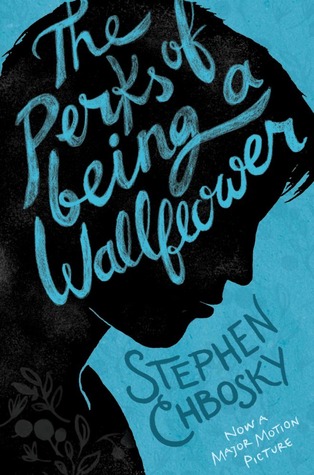Are you the observer in a world brimming with vivacious characters? Do you ever find solace in the sidelines while feeling the tumultuous waves of adolescence crash around you? If you can relate to this sensation, then Stephen Chbosky’s novel “The Perks of Being a Wallflower” may resonate on an even deeper level. This literary gem chronicles the poignant journey of Charlie, a high school freshman navigating the tumultuous waters of adolescence filled with friendships, heartbreak, and self-discovery. However, the narrative isn’t merely a coming-of-age tale; it presents a delicate exploration of the intricate human psyche, inviting readers to introspect and perhaps even challenge their own perceptions of identity and belonging.
Set against the backdrop of the 1990s, Chbosky’s epistolary format—written in the form of letters to an anonymous friend—immerses readers in the inner workings of Charlie’s mind. Right from the outset, we are privy to his insecurities, fears, and hopes. This unfiltered glimpse into his thoughts evokes a sense of intimacy, breaking through the narrative barrier often erected in traditional storytelling. Readers find themselves rooting for Charlie—a relatable figure grappling with the throes of adolescence, unearthing the raw truths of love and friendship, alienation and acceptance.
What makes “The Perks of Being a Wallflower” an extraordinary piece of literature is its multifaceted exploration of themes that resonate universally. Charlie finds comfort in recounting his experiences while holding a mirror up to societal issues such as mental health, trauma, and the quest for human connection. The novel poses a poignant challenge to its readers: how do we, as individuals, confront the complexities of our emotions and relationships? It fosters a deeper understanding of what it truly means to belong and the sacrifices one might make to preserve those connections.
The characters that populate Charlie’s world — Sam, Patrick, and his various family members — are not merely supporting characters; they are intricate cogs in the machinery of his life. Sam, with her luminous spirit and profound kindness, represents a beacon of hope for Charlie, while Patrick, flamboyant and unapologetically true to himself, embodies the notion of authenticity in a world that often demands conformity. The dynamic between these characters adds depth and nuance to the narrative, challenging the reader to consider the influence of relationships on personal growth.
Yet, amid the lighthearted banter and heartwarming moments, Chbosky does not shy away from exploring darker themes. Charlie’s struggles with depression and trauma unfurl throughout the narrative, providing an unvarnished portrayal of mental health issues that often remain shrouded in stigma. The author deftly navigates these complexities, illuminating the necessity for empathy and understanding. The question then arises: how do we support those grappling with such profound inner turmoil? By confronting these challenging subjects head-on, Chbosky encourages open dialogue, maturation, and ultimately, healing.
Another integral aspect of the novel lies in its celebration of the transformative power of art and music. As Charlie discovers the joys of friendship, he also develops a burgeoning appreciation for literature, music, and film. Chbosky cleverly intertwines references to iconic works and songs, creating a rich tapestry that enhances the narrative’s emotional depth. The eclectic mix of influences invites readers to consider their own connections to art, challenging them to seek solace and understanding through creative expression. How do the songs you listen to or the books you read shape your worldview? Can they serve as a tool for navigating life’s complexities?
Ultimately, “The Perks of Being a Wallflower” serves as a profound reminder of the ebb and flow of human experiences. It confronts readers with the whimsical nature of youth and forces them to grapple with the bittersweet realities of life. Chbosky’s evocative prose and relatable narrative compel us to reflect on our own journeys—how we grapple with the trials and tribulations that shape us, how we find joy amid chaos, and how we learn to embrace the beautiful messiness that is life.
In conclusion, Stephen Chbosky’s work transcends mere storytelling; it becomes a mirror reflecting our own insecurities, aspirations, and struggles. As readers, we are challenged to engage, ponder, and perhaps even confront our own perceptions of self and our place in the world. The question remains: are you ready to delve into Charlie’s world and uncover the extraordinary within the ordinary? “The Perks of Being a Wallflower” does not just invite you to witness; it dares you to understand. So, take up this challenge and see how deeply a narrative can resonate, how profoundly it can shift your perceptions, and how ultimately, it can encourage you to embrace your own journey with open arms.
